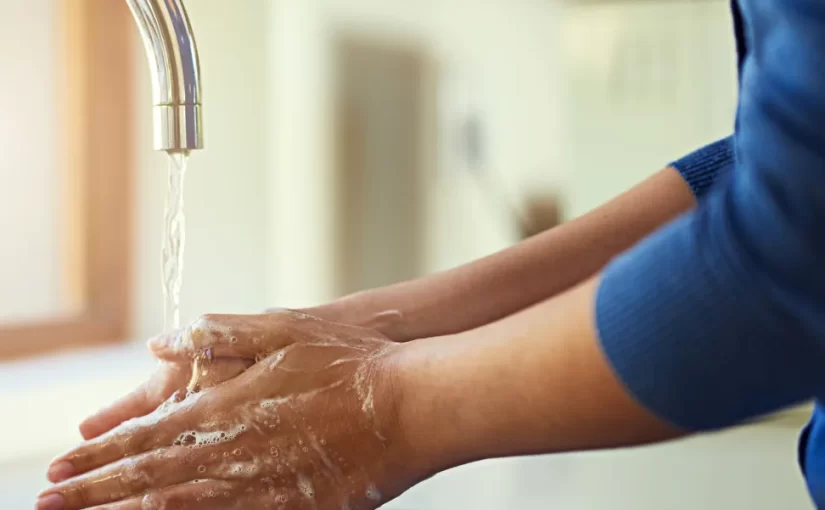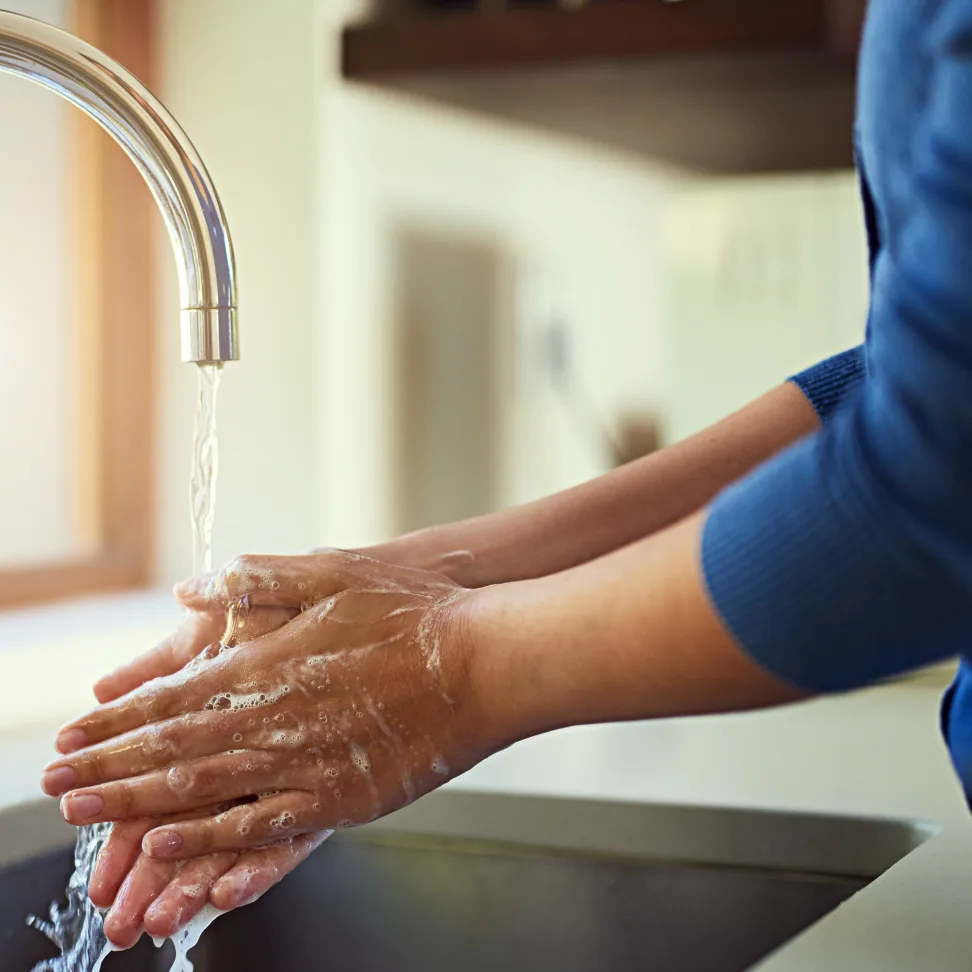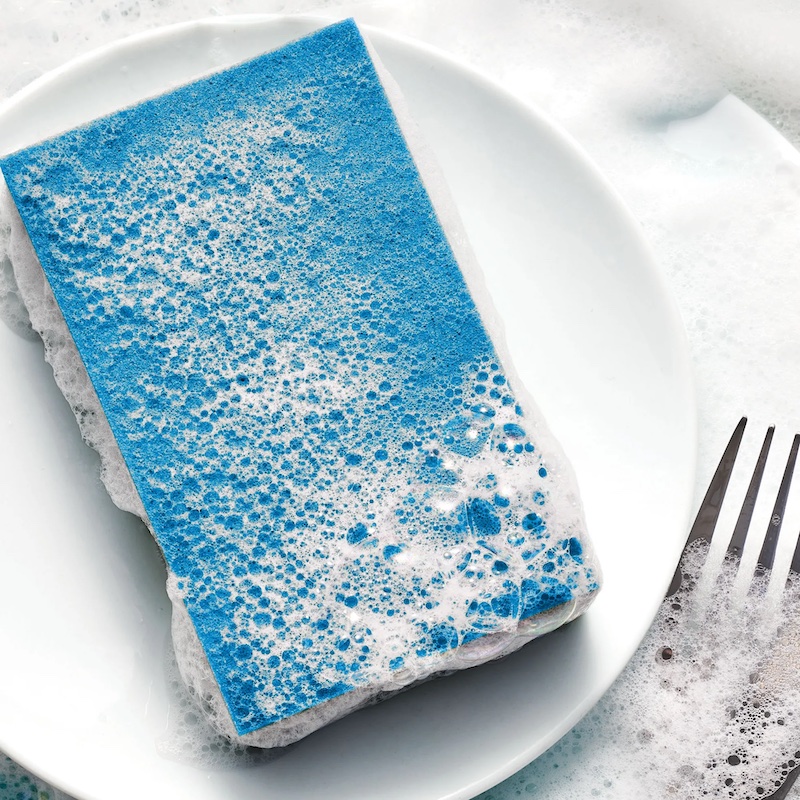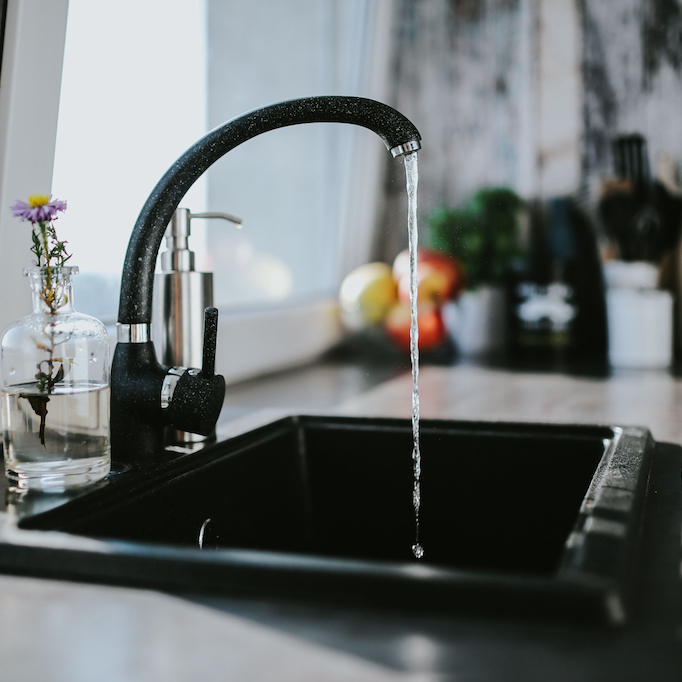Exploring the Suitability of Hand Soap for Dishwashing
When faced with a pile of dirty dishes and no dish soap in sight, you might wonder, ‘Can I wash dishes with hand soap?’ Let’s delve into the suitability of hand soap for dishwashing.
Hand soap, designed for cleaning hands, has specific qualities. It’s gentler on skin and often has added moisturizers. This makes it appealing for those with sensitive skin. But is it tough on grease and food particles on your dishes? Not quite.
Using hand soap for dishwashing can be a makeshift solution in a pinch. It can remove light soiling and leave dishes smelling fresh. However, it isn’t formulated to cut through grease as effectively as dish soap.
Moreover, hand soaps may contain perfumes and moisturizers not food-safe. These can leave a residue on dishes that you may not want in contact with your food. Additionally, hand soaps create more suds, which aren’t ideal for dishwashers and may create extra rinse work.
So, while you can use hand soap to wash dishes, it is not the perfect substitute. Remember that dish soaps have attributes specifically for cleaning cookware, cutlery, and dinnerware. They’re more effective in removing tough grime and sanitizing your dishes properly. Thus, while hand soap can work, there are key differences to consider before you use it as a regular alternative to dish soap.
The Pros and Cons of Using Hand Soap on Dishes
Moving forward from the question of ‘Can I wash dishes with hand soap?’, let’s examine the advantages and disadvantages of using hand soap on dishes compared to traditional dish soap.
Pros of Using Hand Soap for Dishwashing
- Gentler on Hands: Hand soaps are typically softer on the skin, with added moisturizers that can soothe sensitive hands.
- Fresh Scent: They often come with fragrances that can leave dishes smelling pleasant.
- Accessibility: If you run out of dish soap, hand soap is usually readily available at home.
- Light Cleaning: Hand soap can adequately handle light soiling on dishes.
Despite these benefits, the cons of using hand soap for dishwashing are significant and should not be overlooked.
Cons of Using Hand Soap for Dishwashing
- Less Effective on Grease: Hand soap doesn’t cut through grease and heavy soiling like dish soap can.
- Food Safety Concerns: The perfumes and additional ingredients in hand soap might not be food-safe and can leave potentially harmful residues.
- Excess Suds: More foam is produced with hand soap, which can complicate rinsing and is not suitable for use in dishwashers.
- Inefficiency: It may take more hand soap to get dishes clean, leading to waste and possible additional expense over time.
It is crucial to weigh these factors before choosing to use hand soap for dishwashing. While it can serve as a temporary solution, it is no match for the cleaning power and food safety assurance that traditional dish soap provides.
Dish Soap vs. Hand Soap: Understanding the Differences
When cleaning dishes, the choice of soap matters. Dish soap and hand soap are not the same.
Dish soap is a powerful cleaner. It targets grease and food residue effectively. Its formula breaks down tough grime on dishes fast.
Hand soap, in contrast, is for skin. It’s milder and usually has skin softeners. Ingredients in hand soap protect skin during repeated use.
The pH level of the two soaps differs as well. Dish soap has a higher pH, often more alkaline, to attack oils and stuck-on food. But a higher pH can be harsh on skin.
On the other hand, hand soap has a more neutral pH balance. It’s kinder to your hands, avoiding dryness and irritation.
In addition, dish soap contains surfactants designed for cleaning surfaces. Hand soaps have surfactants too, but they are gentler and focus on human skin, not dishes.
Foaming is another difference. Dish soap foams, but not excessively like hand soap. Dishwasher use requires low-foaming soaps, making dish soap the right choice. Lots of suds can cause problems in dishwashers, leading to messes.
Furthermore, hand soaps may contain fragrances and moisturizers. These ingredients can leave a residue and might not be food-safe.
In summary, while you ‘can i wash dishes with hand soap’ in a pinch, understanding these differences is vital. For regular and effective dishwashing, choose dish soap over hand soap.
Step-by-Step Guide to Washing Dishes with Hand Soap
Sometimes we need to use hand soap for dishes. Here’s how to do it right.
- Begin with Less: It’s tempting to use lots of soap, but with hand soap, start with less. You can add more if needed. Remember, too much creates excess suds.
- Pre-Rinse Dishes: Rinse your dishes under running water before applying hand soap. This helps to remove loose food particles and minimize the work the hand soap has to do.
- Apply Hand Soap Sparingly: Put a small amount of hand soap onto a sponge or directly onto the dirty dishes. Avoid pouring soap over an entire stack of dishes because it may lead to overuse.
- Scrub Gently: Use a non-abrasive sponge to scrub the dishes gently. Focus on areas with residue, but don’t scrub too hard as this can damage delicate dishes or glasses.
- Regular Checks: Frequently check the sponge for trapped food particles. Rinse it clean to prevent spreading grime.
- Rinse Thoroughly: Ensure you rinse all the hand soap off the dishes. The goal is to leave no soap residue that could affect the taste of your food or your health.
- Dry Dishes Properly: Air drying is best as it reduces the chance of contamination from towels. If you need to use a towel, choose one that’s clean and dry.
Remember: hand soap should only be a temporary substitute for dish soap. It’s not designed for this job, so only use it when you must.
Potential Risks and Safety Measures When Using Hand Soap
When considering using hand soap for dishes, be aware of potential risks. Safety measures can help reduce these risks.
Understanding the Risks
Using hand soap for dishwashing poses several risks:
- Chemical Residue: Hand soaps may leave a residue that is not food-safe. This residue can transfer to food.
- Skin Irritation: Prolonged exposure to hand soap can irritate skin. This is especially true if hands are submerged for long washing sessions.
- Extra Suds: Too many suds can require more rinsing effort. This can lead to a higher water bill.
- Damage to Utensils: Some hand soaps are not for non-stick or specialty cookware. They can damage surfaces over time.
- Ingesting Chemicals: There is a risk of ingesting chemicals from hand soap. This can happen if dishes are not rinsed well.
Safety Measures to Consider
To minimize the risks, take the following measures:
- Select Safely: Choose hand soaps with fewer additives. Look for those that are fragrance-free and made with natural ingredients.
- Rinse Well: Always rinse dishes thoroughly to remove any soap residues.
- Wear Gloves: Protect your hands by wearing gloves. This helps prevent skin irritation.
- Use Sparingly: Limit the amount of hand soap used. A small amount works best to reduce suds.
- Avoid Dishwashers: Do not use hand soap in dishwashers. The excess foam can damage the machine.
Remember, while ‘can i wash dishes with hand soap’ is a yes in emergencies, it is not the best practice. It’s best to use proper dish soap designed for safe and effective cleaning.
Expert Tips for Effective Dishwashing with Non-Traditional Soaps
In a bind, you might ask ‘Can I wash dishes with hand soap?’ Here are expert tips for dishwashing with non-traditional soaps.
- Pre-Rinse: Always rinse dishes first. This removes loose bits and eases cleaning.
- Less Is More: Use a tiny soap amount. Remember, hand soap foams more.
- Choose Wisely: Pick hand soaps that are less perfumed and gentler on dishes.
- Scrub Smart: Use a soft sponge. Gentle motions prevent dish damage.
- Thorough Rinsing: Rinse dishes well. No soap should remain on surfaces.
- Temperature Matters: Use warm water. It helps remove greasy residues better.
- Clean Rinse Water: Change the rinse water often. It keeps the water clean.
- Avoid Soft Hands Formulas: Some hand soaps have extra oils for skin care. They can leave residue on dishes.
- Wear Gloves: Gloves protect your hands during longer washes with hand soap.
- Don’t Overload: Clean a few dishes at a time. It’s more efficient and effective.
- Air-Dry: Let the dishes air-dry. It’s hygienic and reduces towel contamination.
While non-traditional soaps can clean dishes, they are not ideal. Use these tips for effective temporary dishwashing. When possible, stick to dish soap specifically designed for the job.
Alternative Cleaning Agents for Dishwashing Purposes
When you’re out of dish soap and asking, ‘can I wash dishes with hand soap?’, consider other alternatives. Here are a few options to tackle dirty dishes:
- Baking Soda: An excellent cleaner and mild abrasive, baking soda can help clean dishes. Sprinkle it on a damp sponge and scrub. It’s especially good for removing tea or coffee stains.
- White Vinegar: Vinegar cuts through grease and disinfects. Mix equal parts water and vinegar for an effective rinse aid. It can also remove hard water spots.
- Lemon Juice: The acidity of lemon juice is great for breaking down grime. Apply directly to stubborn residue or mix with water for general cleaning.
- Salt: For tough spots, use salt as an abrasive. It works well on cutting boards and cookware. Rinse thoroughly to avoid a salty aftertaste.
- Rubbing Alcohol: A little alcohol can sanitize and dry quickly. Use it sparingly on surfaces and rinse well.
- Club Soda: The fizzing action of club soda can lift food particulates. It’s a safe, gentle cleaner for everyday use.
- Hydrogen Peroxide: Known for its disinfecting properties, it can clean surfaces. Use it as a last resort due to its potent nature.
Each of these alternatives serves as an emergency solution if you run out of dish soap. But be mindful; they may not have the exact cleaning properties as traditional dish soaps. They can help you manage when you’re in a pinch, but for regular, efficient, and safe dishwashing, it’s best to stick with the product designed for the task: dish soap.
Eco-Friendly and Skin-Sensitive Alternatives to Dish Soap
As we explore options besides hand soap, eco-friendly and skin-sensitive alternatives become vital. Many desire gentler cleaning agents. Selecting green products supports the environment and skin health.
- Castile Soap: Made from vegetable oils, Castile soap is gentle and biodegradable. It works well diluted in water.
- DIY Dish Soap: Create your own with simple ingredients. Mix liquid Castile soap, water, and a bit of baking soda.
- Hypoallergenic Dish Soaps: These are designed for sensitive skin. They lack dyes and harsh chemicals.
- Eco-Friendly Brands: Some companies produce soaps with the planet in mind. Look for ones with sustainable practices and non-toxic formulas.
- Soap Nuts: These are natural cleaners from berry shells. They release a soap-like substance when mixed with water.
- Enzyme-Based Cleaners: These target organic stains and are often gentler on skin.
- Fragrance-Free Options: Opt for soaps without added scents. This helps avoid skin irritation and is safer for the environment.
Using these alternatives can clean dishes effectively while being kinder to your hands and the earth. Always rinse dishes well to ensure no residue remains. And remember, ‘can I wash dishes with hand soap?’ may be a temporary solution, but there are better, more sustainable options available.



